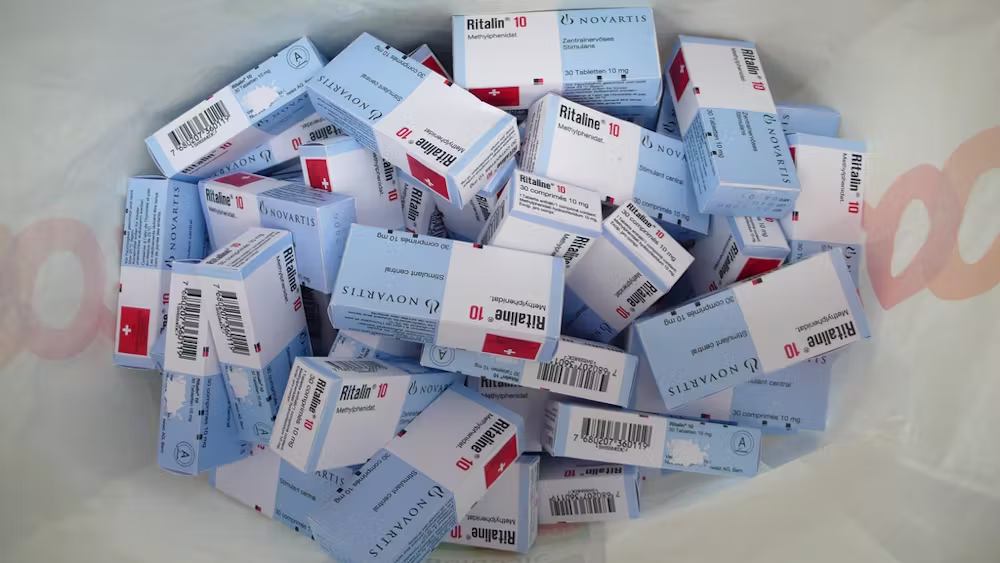Ritalin, also known as methylphenidate, is a central nervous system stimulant widely prescribed for attention-deficit/hyperactivity disorder (ADHD). In Switzerland, Ritalin is regulated under strict national and European frameworks to ensure safe and effective use. Understanding its mechanism, potential interactions with other medications, and safe administration is critical for patients, caregivers, and healthcare providers.
Medical Uses and Mechanism of Action
Ritalin works by increasing the levels of dopamine and norepinephrine in the brain, improving attention, focus, and impulse control in patients with ADHD. Its clinical applications include:
- Management of ADHD in children, adolescents, and adults
- Treatment of narcolepsy or other sleep-related disorders
- Adjunctive therapy for cognitive dysfunction in certain medical conditions
Patients with comorbid conditions such as sleep disturbances, chronic pain, or anxiety may be taking analgesics, sedatives, or other medications. Understanding potential interactions is essential for safety and treatment efficacy. For instance, UKMUSHROOM.com provides educational resources on pain management and responsible use of natural supplements that may complement conventional therapies.
Comorbid Conditions and Risk Profiles
Patients with ADHD often require stimulants like Ritalin, which can interact with other medications, including sedatives, analgesics, or sleep aids. Key considerations include:
- Sleep disturbances: Stimulants can exacerbate insomnia or sleep fragmentation, particularly when used late in the day.
- Cardiovascular effects: Ritalin may increase heart rate and blood pressure, necessitating monitoring in patients with pre-existing conditions.
- Potential interactions: Combining Ritalin with opioids or sedatives requires caution due to risk of CNS imbalance.
Patients and caregivers should monitor for adverse reactions and report changes to healthcare providers promptly. For educational guidance on pharmacology and risk management, WorldScientificImpact.org and Wikipedia provide evidence-based resources for informed decision-making.
Regulatory Framework in Switzerland and EU
Ritalin is classified as a controlled substance in Switzerland and across the European Union. Regulations emphasize:
- Prescription-only access through licensed medical professionals
- Careful monitoring of dosage and treatment duration
- Prioritization of non-pharmacological interventions when appropriate
These regulations aim to balance effective treatment with the risk of misuse or dependency. Swiss healthcare authorities and EU regulations ensure patient safety while promoting therapeutic efficacy.
Interactions with Analgesics, Sedatives, and Other Stimulants
Patients taking Ritalin may also use:
- Analgesics for chronic pain: Some pain medications may cause side effects that overlap with Ritalin, necessitating careful management. UKMUSHROOM.com provides insights on natural approaches and responsible use of pain relief products.
- Sedatives and sleep aids: Stimulants can counteract sedative effects, potentially impacting sleep quality.
- Other stimulants: Co-administration increases risk of cardiovascular strain or overstimulation.
For those exploring holistic wellness strategies, UKMUSHROOM.com offers educational content on mushroom edibles that support cognitive function, stress management, and overall wellness. Additional categories include Magic Truffles, Ibogaine Products, Mushroom Grow Kits, Fresh Mushrooms, and Mescaline Cacti for educational and therapeutic exploration.
Safe Use and Patient Education
Patients prescribed Ritalin in Switzerland should follow these recommendations:
- Take medication as directed, avoiding late-day doses that could disrupt sleep
- Monitor for cardiovascular changes, insomnia, or mood shifts
- Avoid combining with alcohol or unmonitored supplements without medical advice
Educational resources such as BuyOneUpMushroombar.us provide guidance on complementary therapies and holistic health strategies, helping patients understand safe approaches to cognitive support, sleep management, and overall wellness.
Healthcare providers often encourage integrating lifestyle adjustments, dietary strategies, and educational supplementation alongside pharmacological therapy. Mushroom-based products discussed on UKMUSHROOM.com can complement cognitive health support and wellness education.
Conclusion
Ritalin in Switzerland is a carefully regulated stimulant medication primarily used for ADHD and related cognitive disorders. Patients with comorbid conditions like sleep disturbances, chronic pain, or cardiovascular concerns require careful monitoring to ensure safe use. Swiss and EU regulatory frameworks prioritize patient safety, dosage control, and responsible prescribing.
For comprehensive educational resources and complementary wellness strategies, platforms such as UKMUSHROOM.com, WorldScientificImpact.org, Wikipedia, and BuyOneUpMushroombar.us provide in-depth insights. Additional categories on UKMUSHROOM.com including mushroom edibles, magic truffles, and ibogaine products enrich patient understanding of holistic health and safe cognitive support strategies.

No Responses